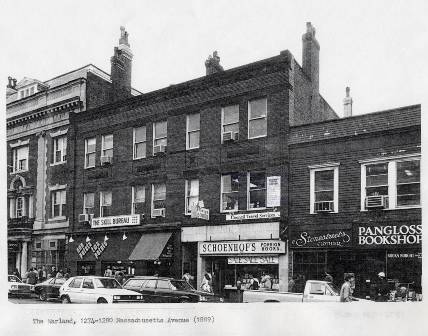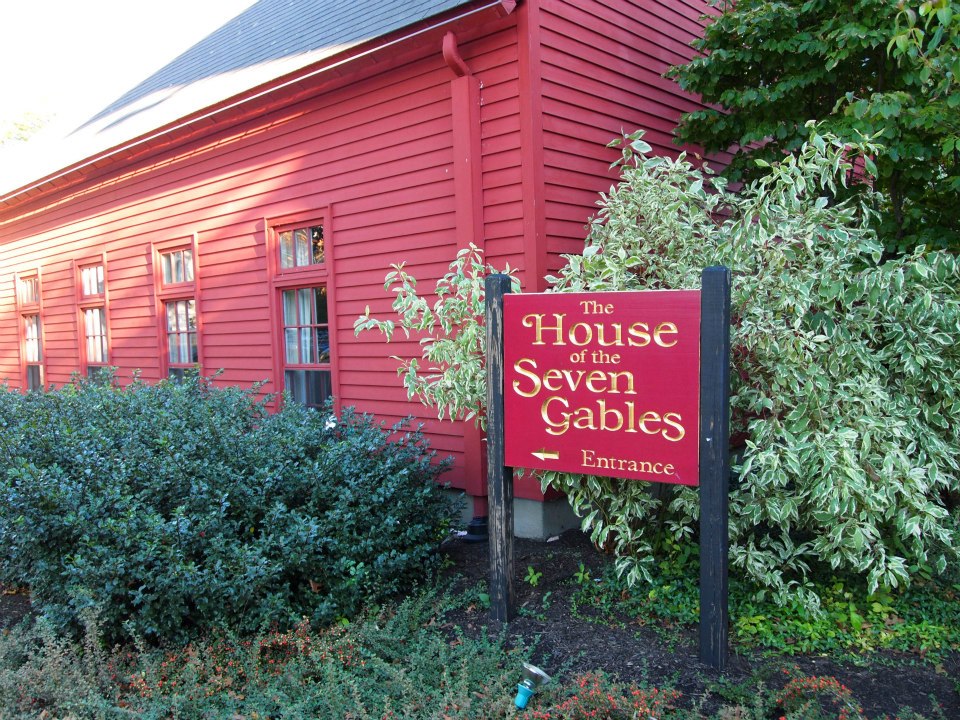
In the past few months, two bookstores in my neighborhood have closed their doors. This might not be a surprise, considering the dire state of brick-and-motor stores around the country, but I happen to live in one of the most academic regions in the United States, where reading is second only to breathing. Harvard Square in Cambridge, Massachusetts, a historical hotbed of the bookstores, should be a natural habitat of the printed word. Unfortunately, it seems that even here, there is no sanctuary from competing online retailers.
This wasn’t always the case. Back in the 1950’s, Harvard Square was home to over 20 different independent booksellers that specialized in everything from obscure poetry to children’s books. Now, independently owned shops like the Harvard Bookstore, Raven Bookstore, Schoenhof’s Foreign Books, and Grolier Poetry Book Shop are far and few between. And while you can buy almost anything at the Harvard Coop, it is owned by Barnes & Noble (the antithesis of a cooperative), thus making it a disappointing substitute for the Square’s former tenants.
According to The Boston Globe, the most recent closures are the direct result of the economy and the increased digitalization, which has hit publishing even harder than most industries. The Globe Corner Bookstore, which specialized in travel books and narratives, will now be operated solely online, and the Curious George & Friends bookshop (the only one of its kind in the world) has also been forced to shut down to the dismay of its many fans. And as Brian McGrory wrote in the article, Vanishing ink in Hub’s core, the damage is not limited to the Cambridge side of the Charles River; the closure of the Borders location at Downtown Crossing highlights this “stunning fact:”
After Borders is gone, it will leave Boston, the literary capital of the United States, with exactly one major bookstore within the city limits. That store is the Barnes & Noble in the Prudential Center, and who knows how long it will be around.To put this in perspective, Columbus, Ohio, has more major bookstores than Boston — many more. So do San Diego and San Jose and just about any other city you can name. It wasn’t that long ago when the Harvard Bookstore stood on Newbury Street across from the massive Waterstone’s, not far from the Brentano’s in the Copley Mall.
While the closures have been met with sadness, it seems like there’s nothing to do about the dearth of bookstores in the area. Hillel J. Stavis and Donna T. Friedman, co-owners of the Curious George bookshop, have plead repeatedly for funds to keep their business going, but no one stepped forward. “From the perspective of a viable business, a Cambridge landmark and as a viable non-profit, we hope that an angel contributor will step forward,” Stavis said at a City Council meeting earlier this year.
As a Cambridge resident, I share the disappointment of many locals who consider bookstores a valuable part of our cultural and physical landscape. Instead of mourning the loss of two great establishments, however, I’ve decided to view this as a reminder. Retailers like Amazon.com and Barnes & Noble have their uses—there is no better place to buy up-to-date text books or trashy and disposable paperbacks—but it’s important to support local business. Instead of spending my money online, I’m going to make a concerted effort to visit the few shops we have left in the flesh, starting with the Harvard Square Bookshop.
After all, this can be a very effective way to change the course of events—and recent trends shows that it does work. Earlier this year, Rodney’s Bookstore, located in Central Square, announced their going out of business sale. Prices were slashed 50% on all stock, and the entire area mourned the loss of a landmark business. Every time I walked by on my way to the train, I felt an uneasy mix of sadness and greedy excitement at the thought of all those half-priced hardcovers. However, when the fateful day finally came, Rodney’s announced that, thanks to their many fans, they were able to raise enough funds to stay in business. Now I feel a certain satisfaction when I walk by the quirky shop. Maybe my purchases, driven by my desire for discounted books, helped save Rodney’s. At least, that’s what I like to think.

